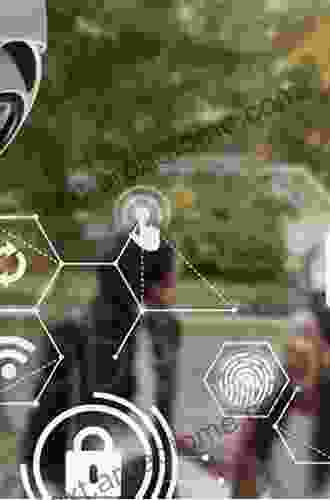Marine Organisms: Illuminating the Path to Biological and Medical Discoveries

The vast expanse of our oceans holds a treasure trove of biodiversity, including an array of marine organisms that have captivated scientists for centuries. These marine creatures, ranging from microscopic plankton to colossal whales, offer a unique window into the fundamental processes of life. Their unique adaptations and physiological characteristics have made them invaluable model systems for studying a wide range of biological and medical phenomena, paving the way for groundbreaking discoveries that have revolutionized our understanding of health and disease.
4.2 out of 5
| Language | : | English |
| File size | : | 61183 KB |
| Text-to-Speech | : | Enabled |
| Screen Reader | : | Supported |
| Enhanced typesetting | : | Enabled |
| Print length | : | 1142 pages |
Marine Organisms: A Rich Source of Model Systems
The diversity of marine organisms presents a vast array of model systems, each offering distinct advantages for specific research endeavors. Here are some of the most widely used marine model systems:
- Cnidarians (Jellyfish, Corals, Anemones): Known for their regenerative abilities, cnidarians provide insights into tissue repair and regeneration, offering potential applications in treating human injuries and diseases.
- Echinoderms (Starfish, Sea Urchins, Sea Cucumbers): The developmental biology of echinoderms has been extensively studied, contributing to our understanding of embryonic development and gene regulation.
- Cephalopods (Squids, Octopuses, Cuttlefish): With their complex nervous systems and learning abilities, cephalopods serve as exceptional models for studying neurobiology, cognition, and behavior.
- Fish (Zebrafish, Medaka, Stickleback): Fish models, particularly zebrafish, have revolutionized developmental biology and genetics, providing valuable insights into human development and disease.
- Crustaceans (Shrimp, Lobster, Crab): Crustaceans are used to study immune responses, environmental toxicology, and the effects of climate change on marine ecosystems.
Groundbreaking Results: Unlocking Biological Mysteries
Marine organisms have been instrumental in advancing our understanding of fundamental biological processes, including:
- Cell Division and Growth: Studies on sea urchins have provided key insights into the mechanisms of cell division and the regulation of cell growth.
- Developmental Biology: Zebrafish embryos have become a powerful tool for studying vertebrate development, revealing the intricacies of gene regulation and organ formation.
- Neurobiology: Cephalopods have shed light on the evolution of complex nervous systems, offering valuable information on learning, memory, and cognition.
- Immunology: Crustaceans have been utilized to study the immune response and the development of novel vaccine strategies.
- Toxicology: Marine organisms, such as mussels and oysters, are used as bioindicators to monitor environmental pollution and its effects on marine ecosystems.
Challenges and Future Directions
While marine organisms offer immense potential for research, their utilization as model systems also presents certain challenges:
- Limited Genetic Information: The genetic information of many marine organisms is still incomplete, hindering the application of advanced genetic techniques.
- Environmental Variability: Marine organisms are susceptible to environmental fluctuations, which can affect their physiology and research outcomes.
- Conservation Concerns: The ethical and environmental implications of using marine organisms as model systems must be carefully considered to ensure the conservation of these species.
Despite these challenges, the future of marine model systems looks promising. Advances in genomics, proteomics, and imaging technologies are opening up new avenues for research. International collaborations and the development of shared resources are also fostering scientific advancements.
Marine organisms have emerged as indispensable model systems in biology and medicine, providing a unique lens through which we can explore the complexities of life. Their contributions to our understanding of fundamental biological processes, disease mechanisms, and environmental health have been profound. As we continue to unlock the secrets held within these marine marvels, we can anticipate even greater advancements in scientific knowledge and innovative treatments for human health.
By embracing the power of marine model systems, we embark on a journey of scientific discovery that promises to illuminate the path towards a deeper understanding of life's mysteries and a healthier future for all.
4.2 out of 5
| Language | : | English |
| File size | : | 61183 KB |
| Text-to-Speech | : | Enabled |
| Screen Reader | : | Supported |
| Enhanced typesetting | : | Enabled |
| Print length | : | 1142 pages |
Do you want to contribute by writing guest posts on this blog?
Please contact us and send us a resume of previous articles that you have written.
 Book
Book Novel
Novel Page
Page Chapter
Chapter Text
Text Story
Story Genre
Genre Reader
Reader Library
Library Paperback
Paperback E-book
E-book Magazine
Magazine Newspaper
Newspaper Paragraph
Paragraph Sentence
Sentence Bookmark
Bookmark Shelf
Shelf Glossary
Glossary Bibliography
Bibliography Foreword
Foreword Preface
Preface Synopsis
Synopsis Annotation
Annotation Footnote
Footnote Manuscript
Manuscript Scroll
Scroll Codex
Codex Tome
Tome Bestseller
Bestseller Classics
Classics Library card
Library card Narrative
Narrative Biography
Biography Autobiography
Autobiography Memoir
Memoir Reference
Reference Encyclopedia
Encyclopedia Matthew Mcelligott
Matthew Mcelligott Thomas Adams
Thomas Adams Shauna Castorena
Shauna Castorena Max Alina
Max Alina Michael Hirsh
Michael Hirsh Mark Hatala
Mark Hatala Matthew Briggson
Matthew Briggson Michael A Samuel
Michael A Samuel Merrill Markoe
Merrill Markoe Olivier Vandenplas
Olivier Vandenplas Martin Patenaude
Martin Patenaude Mark R Stevens
Mark R Stevens Yi Yuan Tang
Yi Yuan Tang Mark M Yarbrough
Mark M Yarbrough Michael L F Slavin
Michael L F Slavin Roberta E Rikli
Roberta E Rikli Megan Hammond
Megan Hammond Ray Goudie
Ray Goudie Mary Kay Andrews
Mary Kay Andrews Mary V Solanto
Mary V Solanto
Light bulbAdvertise smarter! Our strategic ad space ensures maximum exposure. Reserve your spot today!

 Clarence BrooksThe Secrets To Overcome Negativity: How To Change Your Mind And Your Life...
Clarence BrooksThe Secrets To Overcome Negativity: How To Change Your Mind And Your Life...
 Alvin BellPrinciples of Biomedical Instrumentation: The Essential Guide for Healthcare...
Alvin BellPrinciples of Biomedical Instrumentation: The Essential Guide for Healthcare... Eugene ScottFollow ·4.3k
Eugene ScottFollow ·4.3k Roald DahlFollow ·12.3k
Roald DahlFollow ·12.3k Eric HayesFollow ·15.3k
Eric HayesFollow ·15.3k Rob FosterFollow ·13k
Rob FosterFollow ·13k Bret MitchellFollow ·19.4k
Bret MitchellFollow ·19.4k Chase MorrisFollow ·12.4k
Chase MorrisFollow ·12.4k Kurt VonnegutFollow ·10.5k
Kurt VonnegutFollow ·10.5k Walt WhitmanFollow ·13.6k
Walt WhitmanFollow ·13.6k

 Ralph Ellison
Ralph EllisonIntelligent Video Surveillance Systems: The Ultimate...
In a world...

 Jeffrey Cox
Jeffrey CoxThe Origins of the Modern World: A Journey to the Roots...
Embark on an Extraordinary...

 Paulo Coelho
Paulo CoelhoUnlock the Power of Integrated Medical Imaging with...
In the rapidly evolving...

 Charles Reed
Charles ReedThe Christ of the Covenants: Unlocking the Mystery of...
Embark on a Profound...

 Elton Hayes
Elton HayesComputational Hydraulics: A Comprehensive Guide for...
In the realm of fluid dynamics,...
4.2 out of 5
| Language | : | English |
| File size | : | 61183 KB |
| Text-to-Speech | : | Enabled |
| Screen Reader | : | Supported |
| Enhanced typesetting | : | Enabled |
| Print length | : | 1142 pages |










